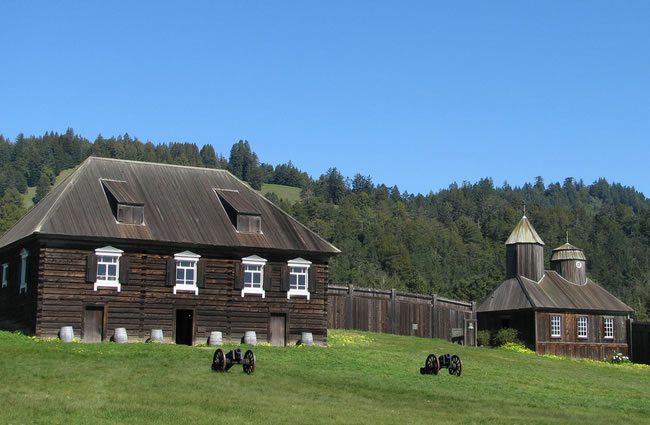
Fort Ross State Historical Park is situated along a new section of the Northern California coastline. Once a Russian settlement from the mid-1800s that served as a base for northern Pacific trade, Fort Ross must have been a bustling place.
Today, Fort Ross is sublime but an exciting and well-kept reminder of early Russian immigration into the United States. From the lofty fort towers, one can see the expanse of the Pacific Ocean from this outpost that was primarily established to hunt sea otters during the California Fur Rush.
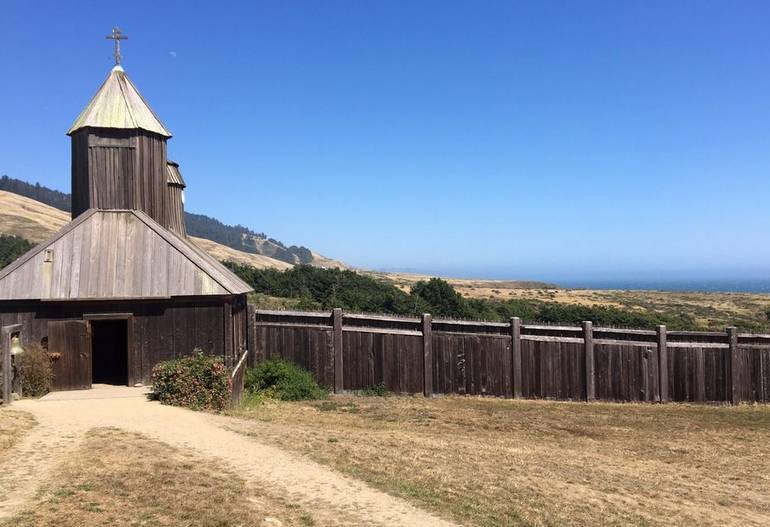
When the sea otter population was decimated, the Russians tried to grow food to supply other forts in Alaska. Unfortunately, they discovered that coastal Sonoma County wasn’t suitable for wheat and sold the Fort to John Sutter, known for his association with the California Gold Rush.
Later, in 1906, the Fort was deeded to today’s California State Parks Commission and is now on the National Register of Historic Places.
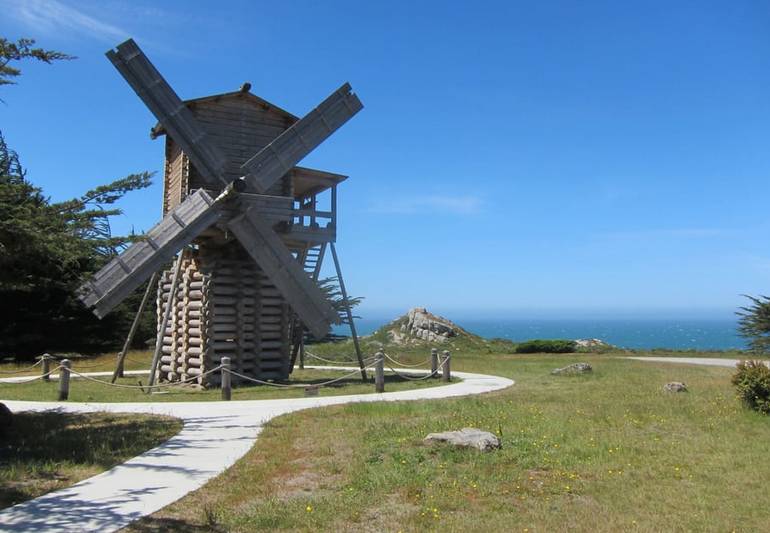
Things to See Fort Ross
After arriving at the Park and paying a modest fee, guests will want to first stop at the visitor’s center, which offers historical about the Fort, a small gift shop, and some interesting interpretive displays of the area’s previous inhabitants.
Because the Fort was home to a unique blend of cultural groups during the Russian American Company occupancy, including Russians, Creoles, Native Alaskans, and Kashaya and Coast Miwok Native Americans, often local tribes sold goods, including native foods inside the center.
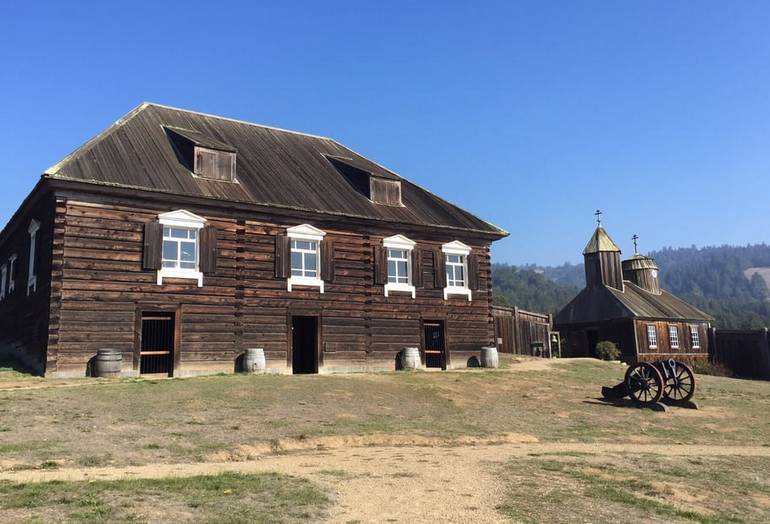
Beyond the visitors center, the Fort comprises several buildings, six open for visitors to explore inside and out. The highlight is the Rotchev House, located in the northwest area of the compound.
Built circa 1836, it is the only remaining original building and is where Alexander Rotchev, the last manager of Fort Ross—lived with his family. Inside, it is full of century clothing, toys, and furnishings.
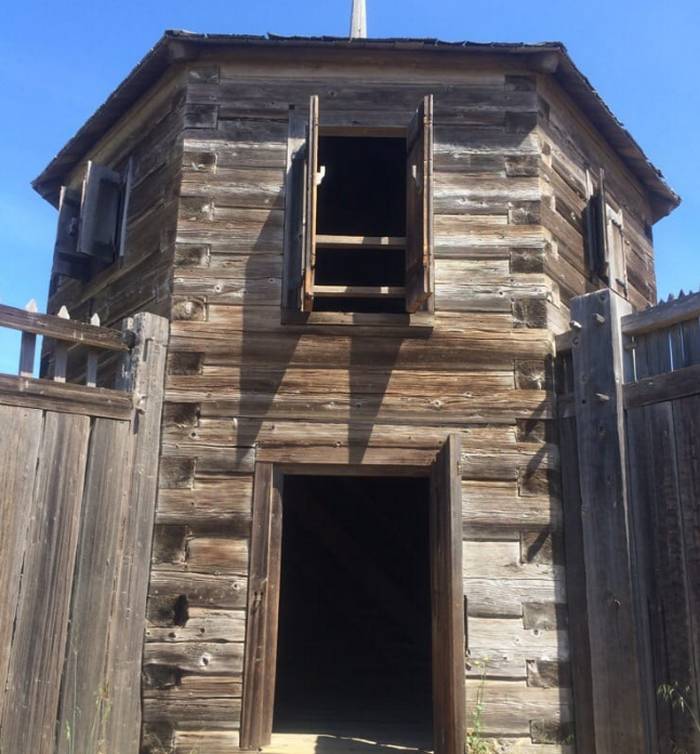
Along with the Rotchev House are several other buildings that have been reconstructed, including the first Russian Orthodox chapel south of Alaska, the fence, and four other buildings called the Kuskov House, the Officials Barracks, and two corner blockhouses.
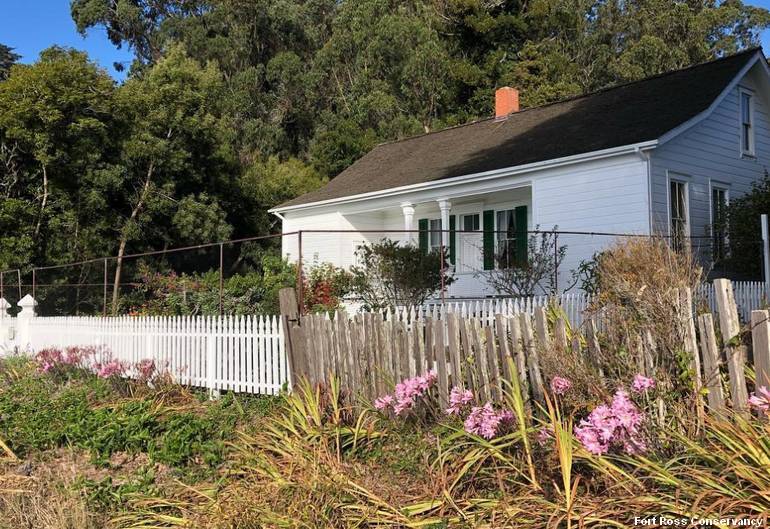
Call Ranch House Fort Ross
Just north of the Fort is the Call Ranch house and several other small buildings representing the American Ranch era, followed after Fort Ross’s possession passed from Sutter to George W. Call in 1903. The Call Ranch house is open the first weekend of each month.
Besides the Fort and its magnificent structures, Fort Ross State Park offers picnic facilities and a campground. Picnic tables are near the visitor center, the Call Ranch House, the historic compound, and Sandy Cove Beach.
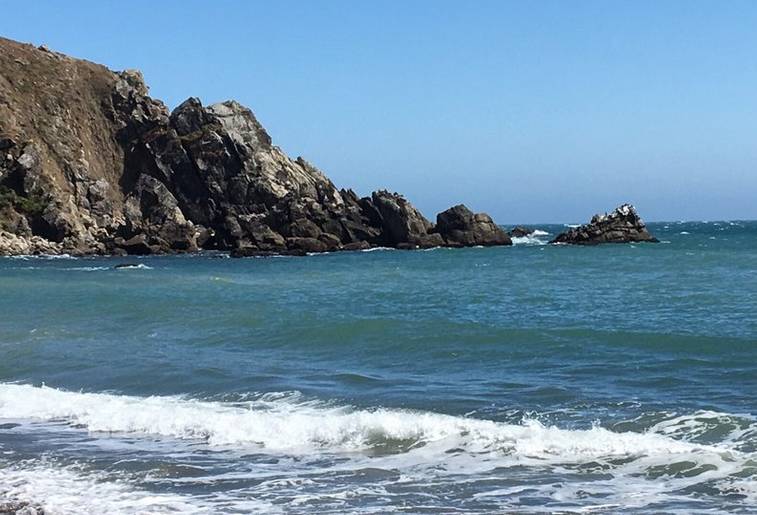
Sandy Cove Beach
There are also plenty of marked hiking trails and great places for fishing for abalone and rockfish. From April through November, Reef Campground is located two miles south of Fort Ross and has 21 primitive campsites. There is a walking trail connecting the campground and Fort Ross SHP; no reservations are required.
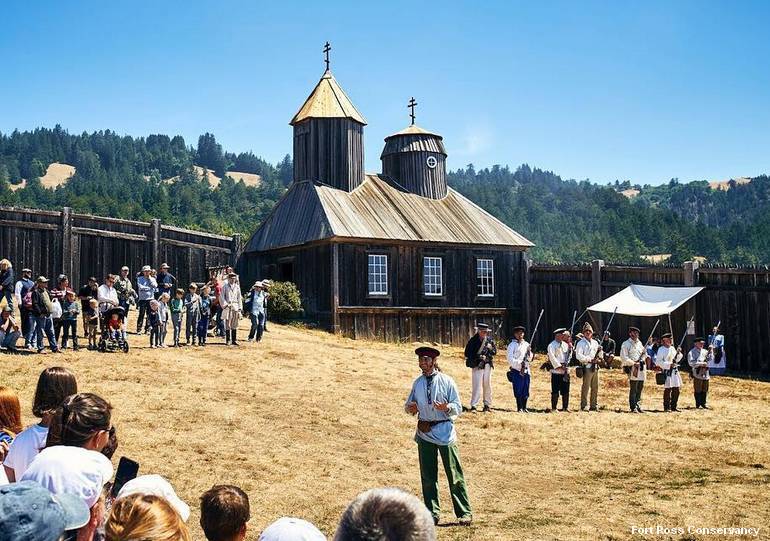
Fort Ross Festival
Volunteers wearing period pieces and Russian-style clothes offer guided tours, musket and cannon demonstrations, blacksmithing, spinning, needlework, cooking, metalworking, woodworking, rope making, and candle-making presentations. Fort Ross Events.

Getting to Fort Ross
Fort Ross is located at 19005 Highway 1, 12 miles north of Jenner, approximately 2 hours and 30 minutes from downtown San Francisco and 3 hours west of Sacramento.
Admission varies throughout the year, and if you pay for access to any State Parks along the Sonoma Coast, you get free entry into the rest of the parks that same day.
Leave a Reply